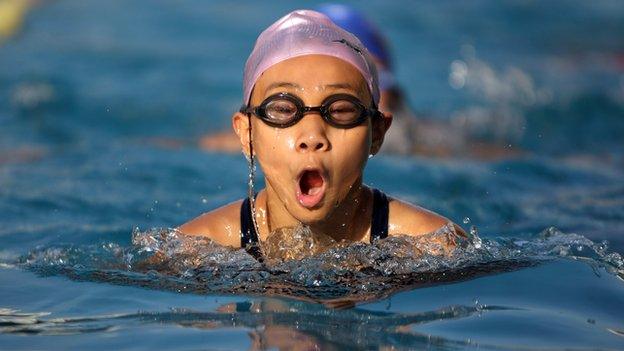John Legend and the others learning to swim as adults
- Published
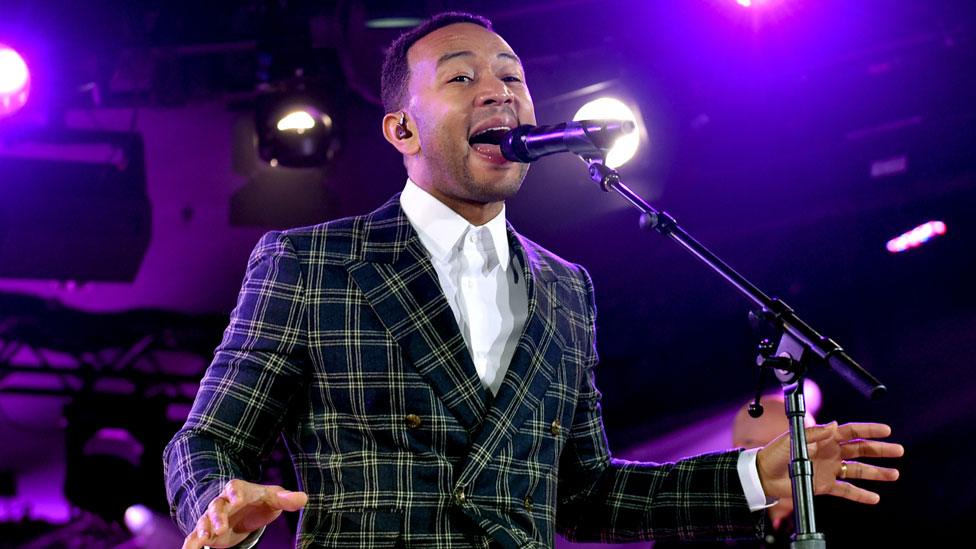
Come on in - the water's lovely. Whether that's diving into an inviting deep blue pool, splashing about in the sunny sea on holiday or taking a brisk exhilarating dip in the open air, it's a pleasure enjoyed by millions.
But for many adults who can't swim, including the singer John Legend, it isn't quite that simple.
The US star surprised many by admitting in a tweet that he was taking his first lesson since he was a five-year-old - and that his two young children had actually started learning before him.
Allow X content?
This article contains content provided by X. We ask for your permission before anything is loaded, as they may be using cookies and other technologies. You may want to read X’s cookie policy, external and privacy policy, external before accepting. To view this content choose ‘accept and continue’.
It was met by a wave of support from others who were learning to swim, or vowed to after seeing his message (he sent a follow-up, saying that the lyrics to his song All of Me had been "all lies" as he sings "my head's under water but I'm breathing fine").
Here's why he's not the only one taking the plunge.
The adult learner
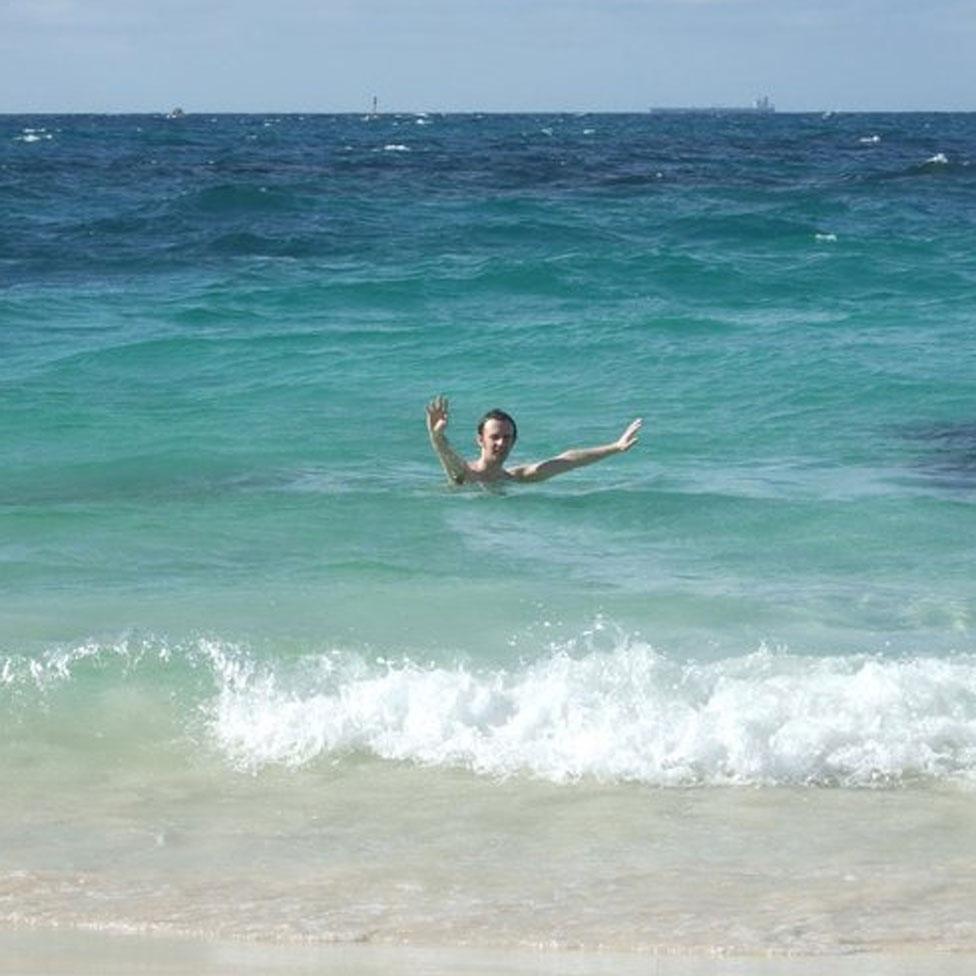

Steve Clark, 43, a musician and pet sitter based near Newbury, Berkshire, learned to swim five years ago - after a bad experience as a teenager.
"I took myself down to the pool one evening, got in and then realised I couldn't do it," said Steve, who hated swimming as a child. "I was struggling and it was a stressful experience. I don't like to admit it, but I was terrified. I just couldn't swim."
Despite thinking "I'll tackle this at some point", it wasn't until 2014 that Steve decided to take swimming lessons after seeing a good deal on offer - and a bit of nudging from his partner.
"She gently persuaded me to dip my toe in the water, so to speak. I made as many arguments as I could against it but eventually decided to do it," he said.
"It was a turning point. The teachers were so understanding. And once I had the confidence to put my head under water, that was a real step forward.
"I've been gradually improving to the point where I can now dive in."
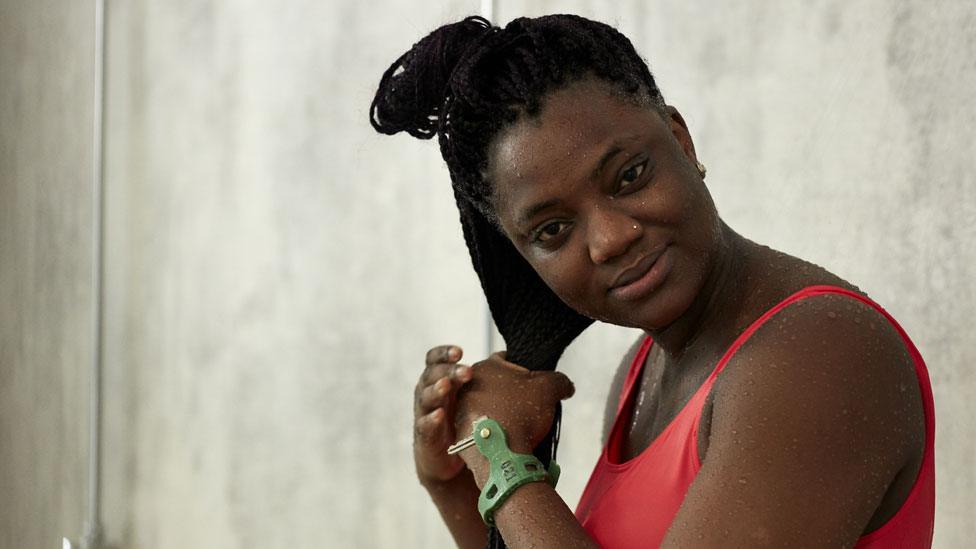
The latest This Girl Can campaign
And the latest This Girl Can campaign also features an adult learner - Oyenike Odewunmi, 24, from Manchester who is learning to swim with the help of YouTube tutorials.
She's expecting her first child and said having a baby is her biggest motivator to get her exercising and in the pool.
The former Olympic swimmer
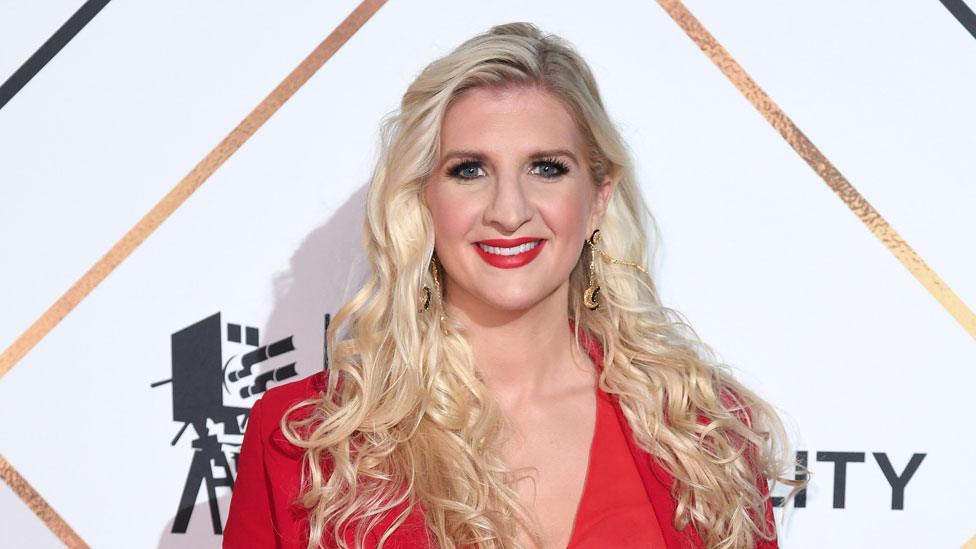
Rebecca Adlington runs one-to-one swimming lessons for adults and is passionate about people of all ages trying the sport.
She said it's "massively" important for people like John Legend to come forward and say they can't swim.
"The most common thing I hear is people saying it's too late to learn, and I say 'why?'," she said. "Lessons aren't just for kids. So many people in their 40s think it's too late. But in one of the pools I use, a 90-year-old swims every day. You can keep swimming for so long, and it's so good for you."
She said what generation people are from - and where in the country they were brought up - can have an impact on whether or not they learned as a child.
"People from near the coast can often swim a lot more and also know the danger of water," she told BBC News. "And in Australia, everyone can swim. It's really looked upon as a life skill.
"It's so important for everyone - what if you got into danger, or your child did? Nobody plans for an emergency to happen. But even if you're going on a boat trip on holiday, you should know how to swim."
She also said she sees swimming as a form of meditation.
"If I feel anxious or low energy, I'll go for a swim - it's like therapy," she said. "In my life I'm constantly attached to my phone, and it's 30 minutes where you put it in the locker and you're in your own world. It's my relaxation time."
What do psychologists say?
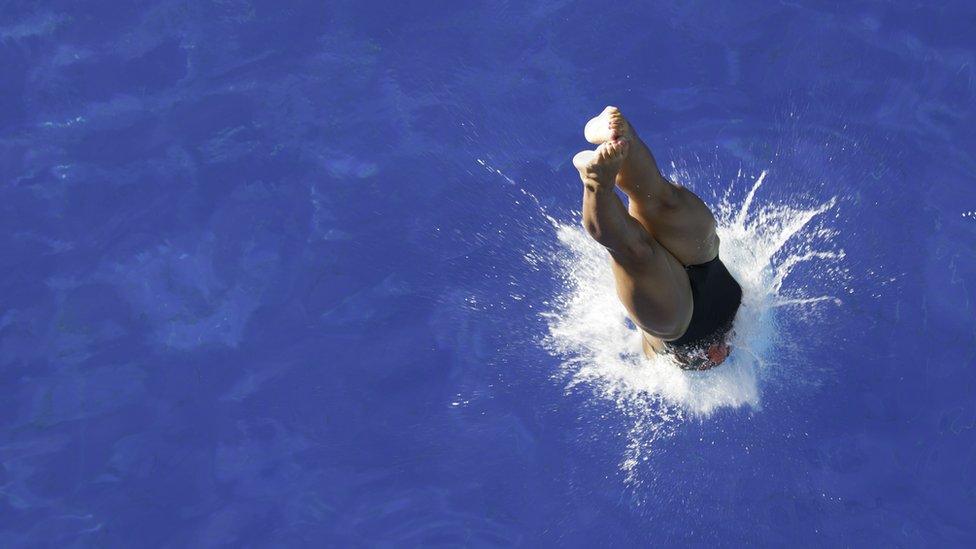
Taking the splash - but what about the fear factor?
Helen Davis, sports psychology consultant for Swim England, said there were a range of reasons for adults being afraid to swim - from having bad experiences as a child, to not liking the smell of chlorine.
"Sometimes, people also think they've left it too late or it's going to be too hard, so it's very easy to put off," she said. "Then there's the fear factor. And if you're not feeling confident as a swimmer it could put you in physical danger.
"Lots of people focus on the uncertainty when learning to swim, which really inflames those anxieties. It's important to overcome that through thinking processes, and using your inner dialogue - think about how you have overcome something difficult before and succeeded.
"Mastering your breathing is the most important thing and then confidence will come."
How to overcome a fear of swimming
Start by getting your feet wet and try to gradually get deeper into the water
When you can stand in water deep enough splash water on your face as if you are washing it. At the same time think of positive images while you are splashing your face.
Next try to learn to hold your breath under the water and breathe out into the water. Basically, blow bubbles!
Hold the side and practice kicking with your body stretched out
Don't feel rushed to make progress.
And finally, remember you are not alone.
Source: Swim England
How about swimming organisations?
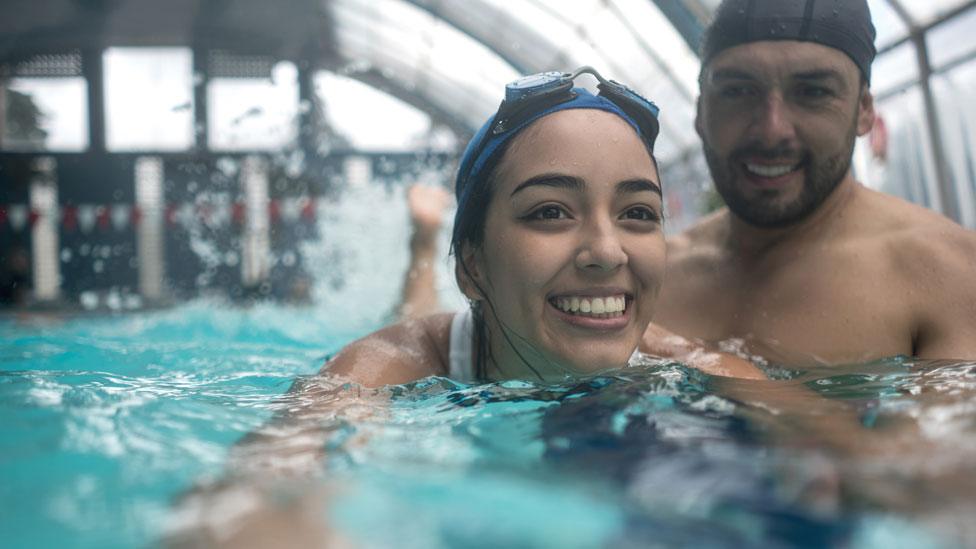
There can be a 'stigma' about adults learning to swim
Sport England's director of insight, Lisa O'Keefe said: "One in five people can't swim but we know from our research that many are interested in learning.
"Sport England and Swim England have done a lot of work over the last four years to understand the barriers people face and what could help them take their first steps."
Kirsten Phillips of Scottish Swimming also pointed out that a parent who doesn't swim is less likely to take their own child swimming. She said of Legend's tweet: "It's fantastic to see someone of his profile come out and say they can't swim. It proves you're never too old."

- Attribution
- Published27 March 2018
